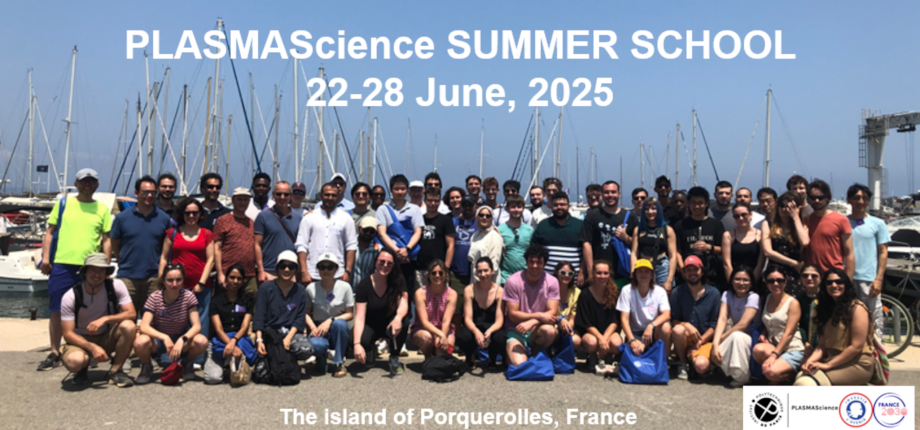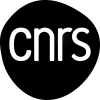A Successful 2nd Edition of the PLASMAScience Summer School

The second edition of the PLASMAScience Summer School, organized by EUR PLASMAScience, took place from June 22 to 28 on the island of Porquerolles (France), centered on the theme “Plasmas for Society”, with a particular focus on low-temperature plasmas. The event attracted 70 participants from 20 countries, confirming its growing international visibility.
In response to nearly the double in number of applications over last year, the International Scientific Organizing Committee (SOC) conducted a rigorous admissions process, ultimately selecting 52 participants. Special attention was given to the diversity of profiles: 57% men and 43% women, coming from a wide range of disciplines and backgrounds. PhD students made up 77% of the participants, along with 18% postdoctoral researchers and young engineers, and a small group (5%) of Master's students who had already authored scientific publications.
Over six days, the participants engaged in an intensive and diverse program exploring various aspects of low-temperature plasma physics through courses and workshops led by 14 international experts from eight countries.
The topics covered a wide array of applications, touching on societal challenges in areas ranging from the environment and energy to space technologies, agriculture, and industrial processes.
Highlights included talks on plasma electrochemistry from both applied (Peter Bruggeman, University of Minnesota) and fundamental (David Go, University of Notre Dame) perspectives; the use of low-pressure RF plasmas in microelectronics (Émilie Despiau-Pujo, Université Grenoble Alpes); and atmospheric-pressure surface treatment (Fiorenza Fanelli, CNR-ICCOM, Italy).
Applications of low-pressure magnetized plasmas in space propulsion using Hall thrusters (Laurent Garrigues, Université de Toulouse) as well as fusion, magnetron sputtering, and ECR sources (Nicolas Plihon, ENS Lyon) highlighted the growing interdisciplinarity of the field.
Other presentations focused on emerging areas such as agricultural and food applications of plasmas (Nevena Puac, Institute of Physics Belgrade), plasma processes for solar cell production (Pere Roca i Cabarrocas, École Polytechnique), photonic crystals and plasma metamaterials (Osamu Sakai, Shiga University), and cesium-free negative ion sources for hydrogen and deuterium for fusion applications (Panagiotis Svarnas, University of Patras).
The program also featured contributions on plasma-assisted green chemical conversion (Richard van de Sanden, TU Eindhoven), hybrid modeling of atmospheric-pressure RF plasmas (Màté Vass, Ruhr-Universität Bochum), the optimization of complex processes using machine learning (Ali Mesbah, UC Berkeley), and the application of network analysis methods to plasma data (Tomo Murakami, Seikei University).
This broad and well-structured overview enabled participants to become familiar with the current challenges of the field while discovering the wide range of opportunities plasmas offer across various sectors.
The quality of the program and the richness of exchanges left a strong impression. Nassima Jaghar, a PhD student at UM6P (Morocco), shared her experience:
“An experience as enriching as it was memorable. The diversity of topics, the quality of the speakers, the exceptional setting, the friendly atmosphere, and the flawless organization made this week truly unforgettable. The exchanges between students from very different backgrounds were particularly stimulating.”
For the organizers, Karim Ouaras (LPICM) and David Pai (LPP), the objectives were fully met:
“The school fostered knowledge-sharing, sparked new vocations, and encouraged the development of promising international collaborations.”
Fouad Sahraoui, Scientific Director of EUR PLASMAScience, noted the event’s growth:
“The school is gaining visibility. It is now co-organized by multiple laboratories, illustrating a strong collaborative dynamic within EUR PLASMAScience. We are seeing a significant increase in outstanding applications. The 2025 edition included 50% international participants, confirming the school's strong appeal both in France and abroad.”
Driven by this momentum, the next PLASMAScience Summer School is already in preparation: it will be held from June 21 to 27, 2026, in Porquerolles.





